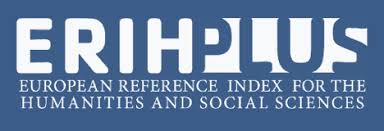№2, 2019
The article comparatively analyzes the higher professional ICT education in the developed countries and highlights the similarities and differences of the educational systems of the United States, European countries, Russia and Azerbaijan. It analyzes the trends and features of the educational systems of the developed countries and provides a list of IT specialties in demand today and in near future. The article also outlines the problems facing higher education institutions that train IT profile specialists. Taking into account the analysis of the curriculum of IT profile of foreign universities, the recommendations of international organizations of standardization, monitoring of the labor market, methodical recommendations are developed to improve ICT education in Azerbaijan. The importance of modernization of the education system and its compliance with modern requirements is shown (pp.71-81).
- Государственная стратегия по развитию образования в Азербайджанской республике", утвержденная распоряжением Президента Азербайджанской Республики от 24 октября 2013 года.
- Керимли Ф. Болонская система и развитие высшего образования Азербайджана // Научный диалог, 2013, № 2(14), с. 22-32.
- Джуринский А.Н. Интернационализация высшего образования в современном мире, М.: Педагогика, 2004, 189 с.
- Levin, J. S., Beach, J., & Kisker, C.. Educational attainment skewed in California Community Colleges? // Community College Journal of Research and Practice, 2009, 33(3-4), c.256–269.
- Levin, J. The revised institution: The community college mission at the end of the twentieth century. Community College Review, 2000, 28(2), c.1-25.
- Jarvis P. Globalization, the Learning Society and Comparative Education // Comparative Education, 2000, Vol.36, No.3, P.346.
- Marginson S. Dynamics of national and global competition in higher education // Higher Education, 2006, 52, pp. 1-39.
- Featherstone (Ed.) Global culture: Nationalism, globalization and modernity Newbury Park, Sage Publications, pp. 295– 310.
- Nelson R. The market economy and the scientific commons // Research Policy, 2004, 33, pp. 455-471.
- Сухомлин В.А. ИТ-образование. Концепция, образовательные стандарты, процесс стандартизации, М., “Горячая линия - Телеком”, 2005, 176 с.
- Information Technology 2008 (IT2008). Association for Computing Machinery and Computer Society of IEEE, http://www.acm.org//education/curricula/IT2008%20 Curriculum.pdf.
- Information Systems 2010 (IS2010). Association for Computing Machinery and Computer Society of IEEE, http://www.acm.org/education/curricula/IS%202010%20ACM%20final.pdf.
- CS2013 - Computer Science 2013: Curriculum Guidelines for Undergraduate Programs in Computer Science, http://www.acm.org/education/CS2013-final-report.pdf.
- SE2014 - Software Engineering Curriculum Guideline, http://www.acm.org/education/se2014.pdf .
- Guide to the Software Engineering Body of Knowledge. Version 3.0 (SWEBOK.v3). A Project of the IEEE Computer Society, http://www.computer.org/portal/ web/swebok.
- Герова Н.В. Требования к результатам освоения основных образовательных программ бакалавриата и магистратуры для студентов в области изучения информатики и ИКТ // Педагогическое образование в России, 2014, № 8, сс. 94-98.
- Образовательное законодательство и образовательные системы зарубежных стран. Под. ред. проф. А.Н. Козырина, М., Academia, 2007, 432 c.
- Мамедова М.Г., Мамедзаде Ф.Р. Объектно-ориентированный подход к определению релевантности информационно-технологического образования на рынке ИТ-специалистов. // Образование и наука, №5, 2014, с. 54-67.
- "America 2000": A National Education Strategy, http://www.capenet.org
- Ляшенко Е. Е. Формирование человеческого капитала в условиях реформирования высшего образования. Автореферат диссертации на соискание ученой степени кандидата экономических наук, Москва,
- Гузаиров М.Б., Гаянова М.М., Козырева В.А. Сравнительный анализ образовательных программ в области информатики в университетах США и России // УГАТУ, 2010, № 4(39), сс. 166-174.
- Обзоры системы высшего образования стран ОЭСР. Система высшего образования Германии, http://www.ecsocman.edu.ru/db/msg/157128.html.
- ABET, Criteria for accrediting engineering program, October 20, 2017, https://www.abet.org
- Handbook for National Monitoring Committees, 2009, http://www.feani.org
- Berkley Academic Guide, http://guide.berkeley.edu/undergraduate/degree-programs
- The Future of Jobs Report 2018 Centre for the New Economy and Society World Economic Forum // http://www3.weforum.org/docs/WEF_Future_of_Jobs_2018.pdf
- Tomas U. Ganiron Jr. Evaluation of Engineering Programs towards Global Accreditation // World Scientific News, 2016 (59), pp. 97-108.





.jpg)









